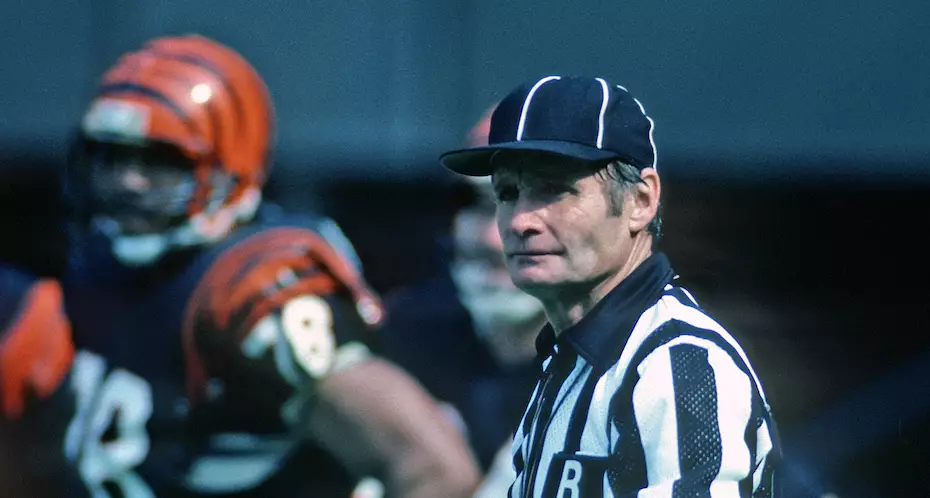The world of professional football mourns the loss of Jim Tunney, a towering figure among NFL referees who passed away recently at the age of 95. Tunney’s distinguished career spanned over three decades, during which he became synonymous with some of the most iconic moments in NFL history. Not only was he a referee, but he also served as a bridge between the sport and its growing television audience, significantly impacting how fans perceived officiating.
Jim Tunney stepped onto the field as a field judge in 1960, marking the birth of a career that transcended mere officiating. His expertise and authority made him a sought-after referee for monumental matches, earning him a record 29 postseason assignments over the years. Tunney’s work was not just technical; it was theatrical in its execution, enhancing the viewing experience of fans across the nation. His involvement in crucial games, including the notorious ‘Ice Bowl’ in 1967 and the dramatic 1981 NFC Championship dubbed ‘The Catch,’ solidified his place in football lore. Remarkably, he officiated during a time when the NFL began its explosive rise in popularity, captivating millions of viewers across America.
Beyond the gridiron, Tunney was a multifaceted individual. Those who knew him from his time as Principal at Fairfax High School in Los Angeles marveled at his ability to juggle this demanding job alongside his NFL responsibilities. His unique double life offers a glimpse into his character—a man dedicated both to education and to the integrity of football. Tunney’s story resonates as he frequently recalled racing to catch flights right after school on Fridays to officiate games across the country.
As the NFL evolved, so too did the demands placed on its referees. Tunney recognized early on that officiating was not just about making calls; it was about cultivating a connection with fans, especially through the medium of television. In fact, he is often regarded as the first referee to adapt to the demands of the televised game. He presented explanations of rules and decisions in a way that made the officiating process accessible to casual viewers, thus enhancing their overall experience. Gene Steratore, a contemporary referee, acknowledged Tunney’s pivotal role in transforming how referees interact with the audience.
In a recent interview, Tunney expressed concerns about the current state of NFL officiating, notably the lack of experienced trainers nurturing the next generation of referees. With 17 officiating crews in place, he highlighted the critical need for firmly established referees to maintain the integrity and quality of the game. His frankness about the challenges facing the NFL today speaks to his lifelong passion for the sport and his commitment to ensuring its future.
Jim Tunney’s contributions to football extend far beyond the field. His legacy serves as a reminder of the importance of passion, dedication, and adaptability in sports officiating. As the NFL progresses further into the digital age, Tunney’s influence will surely resonate, inspiring future generations of referees to embrace not only the responsibilities of their roles but also the thrill of connecting with fans worldwide. His passing marks the end of an era, but his spirit will continue to inspire those who strive to uphold the game’s integrity.

Leave a Reply